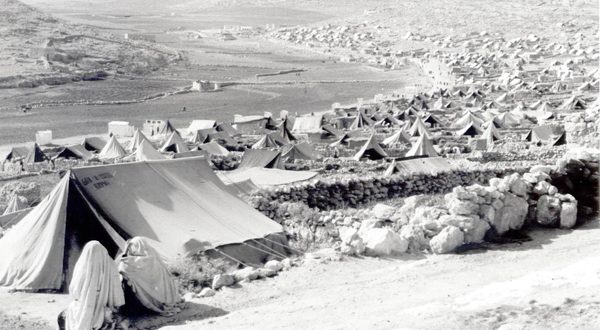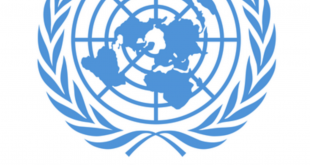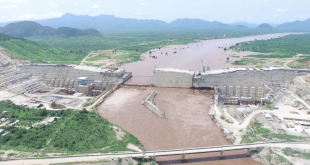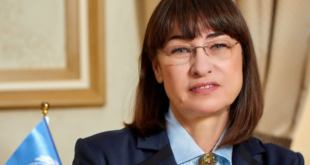Seeking to examine 100 years of Arabs’ aborted re-awakening, Salah Nasrawi asks: Why does the Arab world keep failing?
Salah Nasrawi
The world marked the centennial of the end of World War I in November. While Europe celebrated the signing of the armistice as a day to remember, the anniversary passed in near silence in the Arab world, which was nevertheless the scene of some of the war’s major and most-decisive battles.
While World War I cast its geopolitical shadow across Europe, its impact on the Arab world was even more far-reaching. It eroded the old world in 1918 and later set the stage for a new regional order that today is shifting under the Arabs’ feet.
More than anything else, the seeds of today’s crises in the Arab world were sown in the heat of the war. Kept dormant for nearly 500 years by the weight of Ottoman domination, the Arabs hoped to re-awaken, ready to reclaim their place as the leaders of learning, tolerance and trade in the new international order.
However, instead of recreating themselves as a domestic and global force of modernisation, the Arab countries that emerged from the ashes of the war have slipped into a decay characterised by a pattern of disunity, disorder, mismanagement, underdevelopment and above all failed modernisation.
Today, despite the changes taking place, the nation-state in most Arab countries is challenged by a variety of intra-regional and extra-regional political, socioeconomic and cultural factors that have contributed to the present-day predicament.
After a century, the collective experience of the Arab countries in undergoing modernisation has been far less than was expected after independence and the beginning of interaction with the modern world’s other cultures and civilisations.
The Arabs have not been able to modernise their societies to fit the requirements of the modern world. Indeed, when one thinks of the Arabs’ yearning for independence and modernisation at the beginning of the 20th century and the Arab countries today, one cannot help but conclude that the Arabs have not been able to reach their own perceptions of modernity.
Why have the Arab countries failed to change and draw strength from their values, traditions and heritage and transform their ancient achievements into modern societies enjoying democracy, satisfaction and well-being?
First in line for blame is the fact that the Arabs’ troubles in fitting in with the modern world run wide and deep and therefore should be tackled with courage and vigour. In order to catch up with the modern world, the Arabs must revisit their old values and carry out religious reforms in order to uproot misinterpretation, bigotry and extremism.
Extremism, violence, terrorism and sectarianism are all products of flawed modernisation. They are the underlying factors that explain why the Arab world has been hollowed out and why anarchy pervades so many countries and threatens to embroil others.
Second in line for blame is the slow and sometimes negative socio-economic development that has failed to deliver the urbanisation that is imperative for the spread of a liberal education, rationalisation, democratisation and the making of modern nations.
Third in line is the dysfunctional economic development that has kept the Arab world lagging far behind other regional blocs despite its huge resources. Over the past 100 years many things have changed for the better in many Arab countries, especially in the wealthy countries in the Gulf, but overall advances remain insufficient for economic and social development.
Statistics relating to socio-economic development, such as labour-force participation, unemployment, poverty, healthcare, education and illiteracy rates and indices of the quality of life in most Arab countries, indicate that the Arab world is losing the race for human development.
However, perhaps most to blame for the chaos and uncertainty dominating the political scene in the Arab world are the external challenges causing a plethora of extra-regional threats, some of them existential.
A century after the Great War and the ill-fated agreements between the European colonial powers to carve up the region after the defeat of the Ottoman Empire, several Arab countries are unravelling while the regional order seems to be heading towards massive geopolitical change.
In this year-end issue, Al-Ahram Weekly writers try to explain why countries that saw the birth of the world’s most ancient civilisations are now falling apart.
The civil wars in Iraq, Libya, Syria and Yemen that have been the result of foreign interventions or political upheavals have left these countries in a mayhem that threatens to embroil their neighbours and possibly the entire region.
One of the worst consequences of these conflicts has been the unleashing of sectarianism and confessional divide and the creation of ethno-sectarian enclaves that have sown the seeds for the geographical and political disintegration of these countries.
Among the primary factors responsible for today’s sorry state of affairs in the Arab world is the Palestinian people’s experience of dispossession and the loss of their national homeland.
The Nakba, or the “catastrophe” as the Arabs have dubbed it, has not only defined the Palestinians’ statelessness and occupation, but it has also kept the Arab world in the throes of a calamity and grappling with disorder.
Despite the peaceful overtures made by the Palestinians and the Arabs, Israel has remained adamant in keeping territories it seized in its consecutive wars with the Arabs, leading to the collapse of the Middle East Peace Process and the worsening of tensions in the region.
The current US agenda to promote Middle East peace, widely known as the “Deal of the Century,” is nothing but a roadmap for the end of Palestinian statehood in line with long-standing Israeli-US policies.
In the bigger picture, 100 years after the birth of their first modern states the Arabs remain on the defensive, and the Arab world is being slowly emptied of its essence. This has resulted in the Arabs struggling to protect their status and legitimacy, while the regional order that represents traditional arrangements of power and influence has been imploding.
From: Al-Ahram Weekly






